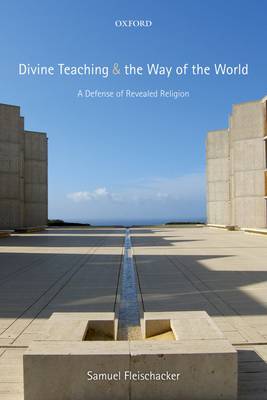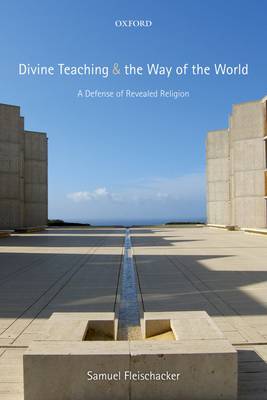
- Afhalen na 1 uur in een winkel met voorraad
- Gratis thuislevering in België vanaf € 30
- Ruim aanbod met 7 miljoen producten
- Afhalen na 1 uur in een winkel met voorraad
- Gratis thuislevering in België vanaf € 30
- Ruim aanbod met 7 miljoen producten
Zoeken
Divine Teaching and the Way of the World
A Defense of Revealed Religion
Samuel Fleischacker
Paperback | Engels
€ 96,95
+ 193 punten
Uitvoering
Omschrijving
Samuel Fleischacker defends what the Enlightenment called "revealed religion" religions that regard a certain text or oral teaching as sacred, as wholly authoritative over one's life. At the same time, he maintains that revealed religions stand in danger of corruption or fanaticism unless they are combined with secular scientific practices and a secular morality. The first two parts of Divine Teaching and the Way of the World argue that the cognitive and moral practices of a society should prescind from religious commitments -- they constitute a secular "way of the world," to adapt a phrase from the Jewish tradition, allowing human beings to work together regardless of their religious differences. But the way of the world breaks down when it comes to the question of what we live for, and it is this that revealed religions can illumine. Fleischacker first suggests that secular conceptions of why life is worth living are often poorly grounded, before going on to explore what revelation is, how it can answer the question of worth better than secular worldviews do, and how the revealed and way-of-the-world elements of a religious tradition can be brought together.
Specificaties
Betrokkenen
- Auteur(s):
- Uitgeverij:
Inhoud
- Aantal bladzijden:
- 570
- Taal:
- Engels
Eigenschappen
- Productcode (EAN):
- 9780199676439
- Verschijningsdatum:
- 18/07/2013
- Uitvoering:
- Paperback
- Formaat:
- Trade paperback (VS)
- Afmetingen:
- 156 mm x 234 mm
- Gewicht:
- 789 g

Alleen bij Standaard Boekhandel
+ 193 punten op je klantenkaart van Standaard Boekhandel
Beoordelingen
We publiceren alleen reviews die voldoen aan de voorwaarden voor reviews. Bekijk onze voorwaarden voor reviews.











